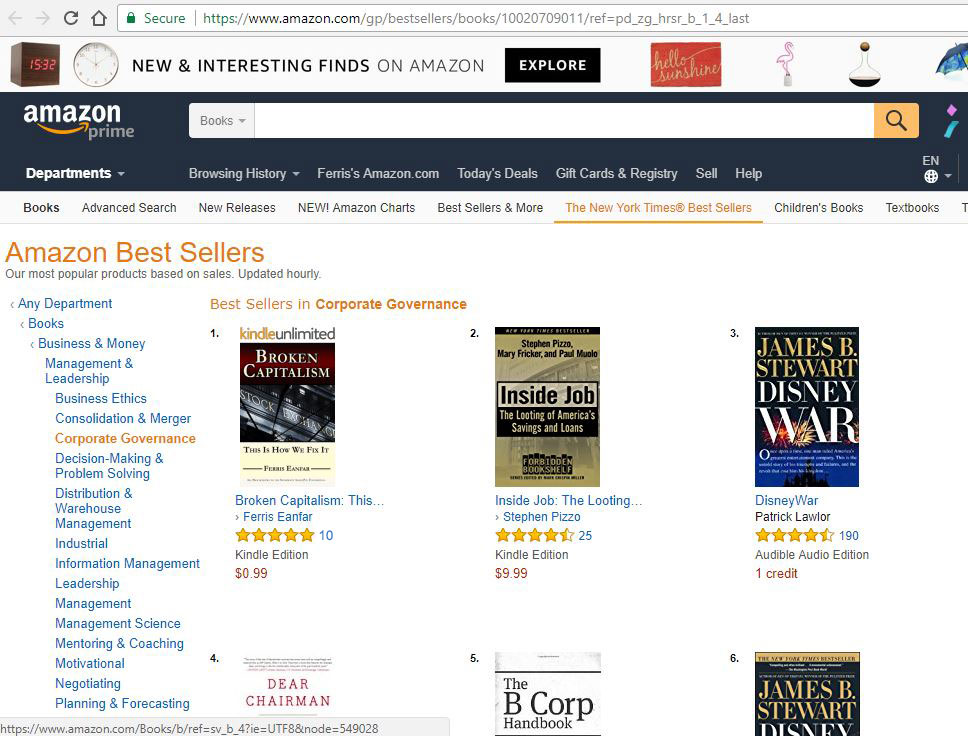Should a State Seek Hegemony? “Hegemony” should be defined before discussing this topic. My definition: “Hegemony describes a dominant state’s capacity to compel other states in the International System to consider the dominant state’s interests before acting in their own interest.” With this definition in mind, the answer is certainly, yes, every state should seek to maximize its influence over its environment just as every individual should seek to maximize their influence over their environment. Influence facilitates the fulfillment of needs and desires. Every state and every individual wants to fulfill their needs and desires. There’s nothing wrong with that.
The Threat of Balancing. Although influence-building is desirable, the potential threat of “balancing” by other nations creates predictable risks. In the field of International Relations, “balancing” is the process by which one or more nations take action to balance the power of another aggressive nation. This may lead to economic sanctions, diplomatic rebukes, or outright warfare launched against the aggressive state. Balancing is the biggest external threat that an aggressive nation faces, which leads to interesting discussions about how nations can and should develop their long-term power and influence.
Historical Examples of Balancing. The Peloponnesian War, the Napoleonic Wars, WWI and WWII were all examples of major conflicts that were primarily instigated by aggressive states that were attacked by balancing states or balancing coalitions because the aggressive states threatened their neighbors. It doesn’t matter if the threats come directly through a rising power’s belligerence or indirectly through their failure to allay the fears of their neighbors about the rising power’s intentions; balancing states and coalitions will knock down the aggressive states if they try to rise too quickly through direct territorial acquisition.
The Soft Power Path to Hegemony. For these reasons, the principle of “soft power” is a far more effective mechanism to achieve economic, cultural and political influence, which can collectively result in a kind of economic and cultural hegemony without resorting to territorial conquest. This has been the primary modus operandi of the United States over the past 130 years. India is also having great success with this path to geopolitical power. Of course, the U.S. empire has also frequently benefited from military incursions that paved the way for American corporate interests to exploit foreign commercial markets, but these were not modeled after the British notion of colonial empire and hegemony. (Some might argue this is a distinction without a difference, but that’s a topic for another article.)
Transcending Labels to Capture Geopolitical Reality. What I have described above is consistent with the principle of “Defensive Realism” in terms of its external appearance, but my conception of national influence-building also seeks to achieve the Offensive Realist’s goal of maximizing influence through the effective development and exploitation of soft power, which can lead to a kind of hegemony. So I don’t perceive these two concepts (Defensive and Offensive Realism) as mutually exclusive. Or more precisely, I think they are both contrived labels that over-simplify the reality of how states actually navigate the geopolitical landscape in defensive and offensive ways simultaneously at any given point in time.
About Ferris Eanfar
Ferris Eanfar has over 20 years of experience in technical, financial, media, and government intelligence environments. He has written dozens of articles and several books in the fields of Economics, Crypto-Economics, and International Political Economy, including Broken Capitalism: This Is How We Fix It and GINI: Capitalism, Cryptocurrencies & the Battle for Human Rights and the Global Governance Scorecard. Ferris is a cofounder of the Gini Foundation, which builds unique cryptocurrency systems to protect human rights, among other benefits; and the CEO of the AngelPay Foundation, a nonprofit financial services company with a mission to “return wealth and power to the creators of value.” To learn more about Ferris, please visit the About Ferris page.Visit Ferris on:

 Gini Website Coming Soon. We (
Gini Website Coming Soon. We (
